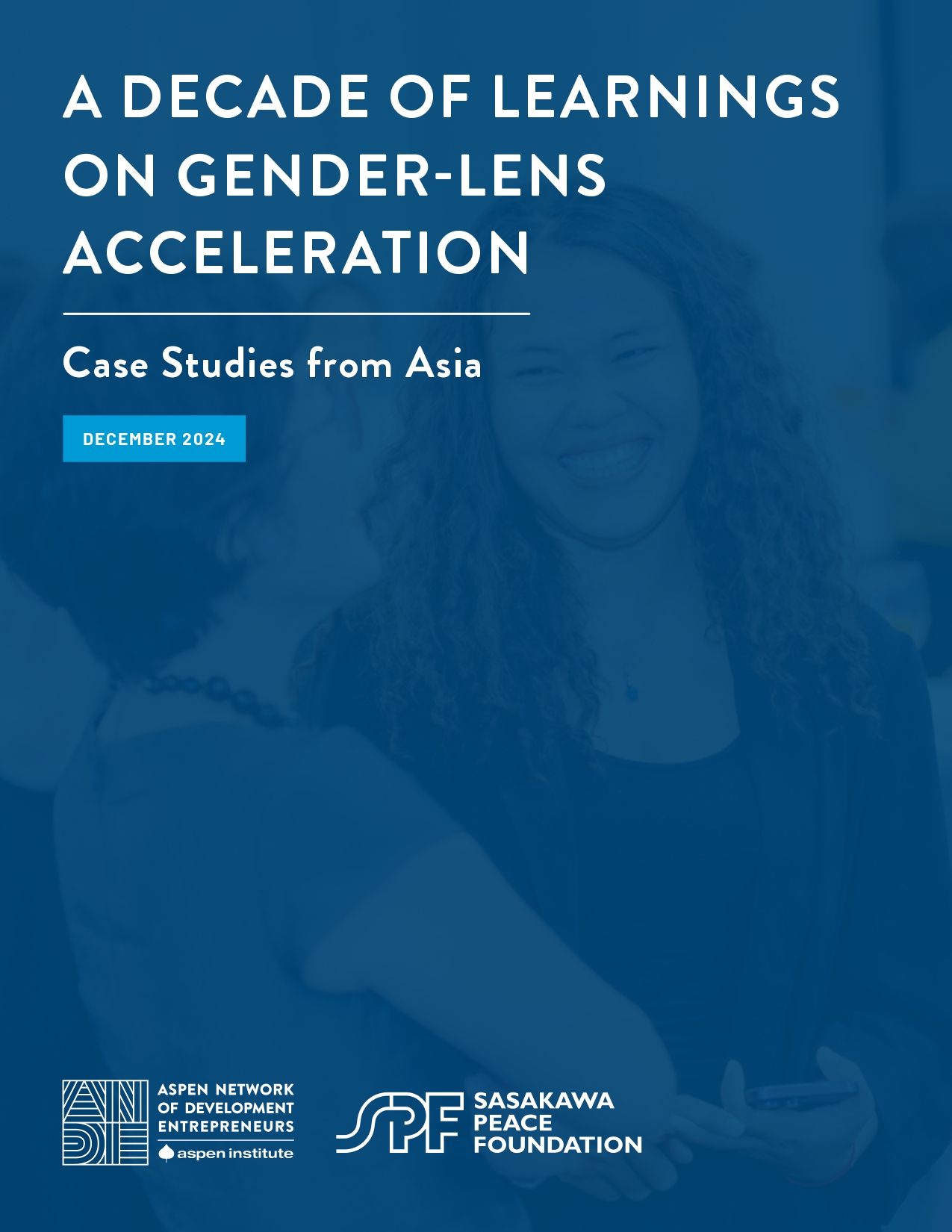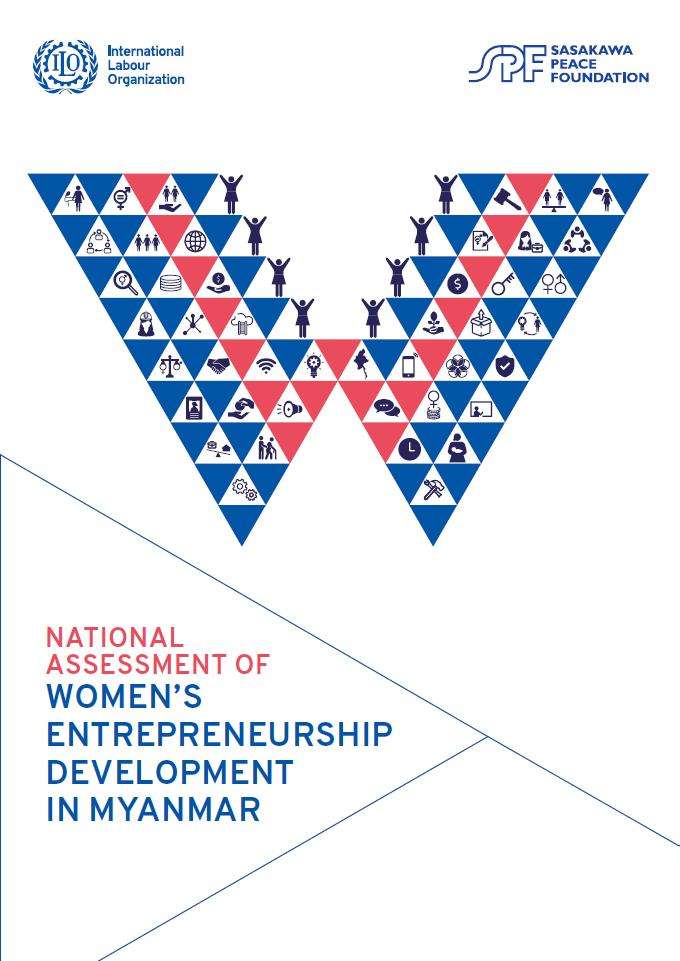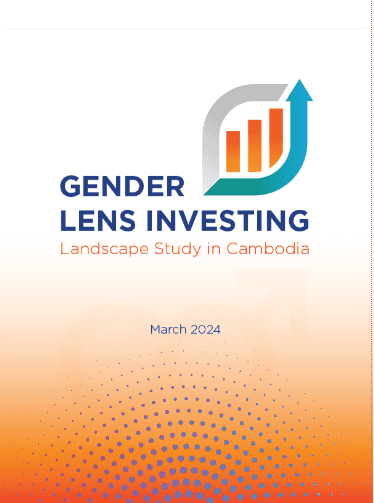
A DECADE OF LEARNINGS ON GENDER-LENS ACCELERATION: Case Studies from Asia
Over the past decade, Asia has seen a rapid expansion in entrepreneurship, but women-led enterprises face unique challenges that often limit their growth and access to funding. This report by the Sasakawa Peace Foundation (SPF) and the Aspen Network of Development Entrepreneurs (ANDE) examines the impact of gender-lens acceleration on women entrepreneurs across Asia.

